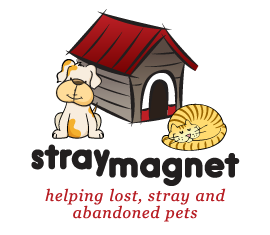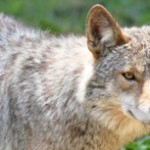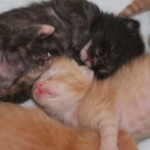Coyotes are back in Nashville!!!
Last January we saw several coyotes in our neighborhood, across the street and even in our yard. Neighbors reported cats and small dogs being killed by coyotes. A year later, they are back! Apparently there are news stories going back several years of residents having close encounters with coyotes and showing concern for the brazen disregard for humans. This is not a new problem but it hasn’t garnered much media attention.
Are they prevalent in Middle Tennessee and what should you do?
According to the USDA Wildlife Services “Almost no animal in America is more adaptable to changing conditions than the coyote. Coyotes live just about anywhere. They are found in deserts, swamps, tundra, grasslands, brush and dense forests, from below sea level to high mountains. They have also learned to live in suburbs and cities” from Los Angeles to New York including Nashville.
 A key to their adaptability is their versatile diet. While they prefer smaller animals including sheep, deer, poultry, rodents, rabbits, birds, squirrels, and skunks in urban areas they will eat much of what we put in trash cans from fruits and vegetables, to pet food. Her lies part of the reason that coyotes in urban areas have become more bold and therefore more dangerous. As the Wildlife Services reports “Coyotes adapting to an urban environment can become bolder because they are less likely to be harmed and more likely to associate people with an easy and dependable food source.”
A key to their adaptability is their versatile diet. While they prefer smaller animals including sheep, deer, poultry, rodents, rabbits, birds, squirrels, and skunks in urban areas they will eat much of what we put in trash cans from fruits and vegetables, to pet food. Her lies part of the reason that coyotes in urban areas have become more bold and therefore more dangerous. As the Wildlife Services reports “Coyotes adapting to an urban environment can become bolder because they are less likely to be harmed and more likely to associate people with an easy and dependable food source.”
While there aren’t many reported attacks on humans there are frequent attacks on domestic animals particularly small dogs and cats. It’s very important to protect your animals by not leaving them unattended especially at night. If your yard is not fenced and a coyote could gain access then walk your dog on a leash. If you have an outdoor cat, please consider bringing them in at night.
Tips to keeping coyotes away
provided by the United States Department of Agriculture, Wildlife Services
“-Do not feed coyotes!
-Eliminate sources of water, particularly in dry climates.
-Bird feeders should be positioned so that coyotes cannot get feed. Coyotes are attracted by bread, table scraps, and even seed. They may also be attracted by the birds and rodents that come to feeders.
-Do not discard edible garbage where coyotes can get to it.
-Secure garbage containers and eliminate garbage odors.
-Feed pets indoors whenever possible. Pick up any leftovers if feeding outdoors. Store pet and livestock feed where it is inaccessible to wildlife.
-Trim and clean, near ground level, any shrubbery that provides hiding cover for coyotes or prey.
-Fencing your yard could deter coyotes. The fence should be at least 6 feet high with the bottom extending at least 6 inches below ground level for best results.
-Don’t leave small children unattended outside if coyotes have been frequenting the area.
-Don’t allow pets to run free. Keep them safely confined and provide secure nighttime housing for them. Walk your dog on a leash and accompany your pet outside, especially at night. Provide secure shelters for poultry, rabbits, and other vulnerable animals.”
Tennessee Wildlife Resources Agency adds:
“-Do not place trash cans out the night before scheduled pick-up. Placing cans out in the morning before pick-up will give coyotes less time to scavenge. They will not have cover of darkness.
-Do not leave barbecue grill outside and uncovered. The smell of the grill and the contents of the grills drip pan attracts coyotes.
-Discourage coyotes from frequenting your area. Harass them by throwing rocks, shouting, and making loud noises when one is seen.“
Other interesting facts
provided by Tennessee Wildlife Resources Agency
Physical Characteristics:
“The average weight of a coyote in Tennessee is 20-40 pounds, about the size of a small to medium sized German Shepard. The coyote has erect, pointed ears, slender muzzle with a black nose and a bushy tail which is carried down as it runs.”
“Their eyesight is six times greater than mans. Sense of smell is extremely well developed, more than 23 times better than mans.”
Breeding
“Coyotes breed during January through March. Daytime activity increases during the coyotes breeding season. After breeding season, coyotes begin a frenzy of feeding activity and begin searching for suitable denning sites.”
There is a local coyote resources in town called Nashville Coyote Resource “NashvilleCoyotes.com” which features helpful information, videos and sighting reports.
Pass along your coyote reports to contact@straymagnet.com or comment on facebook at https://www.facebook.com/thestraymagnet.
Two Main Resources:
United States Department of Agriculture, Wildlife Services
Tennessee Wildlife Resources Agency








